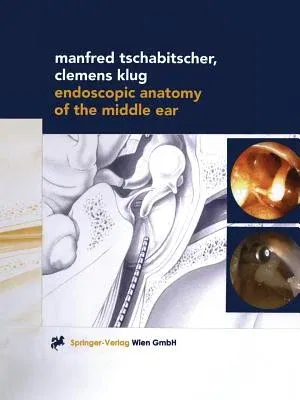Manfred Tschabitscher
(Author)Endoscopic Anatomy of the Middle Ear (Softcover Reprint of the Original 1st 2000)Paperback - Softcover Reprint of the Original 1st 2000, 5 November 2012

Qty
1
Turbo
Ships in 2 - 3 days
In Stock
Free Delivery
Cash on Delivery
15 Days
Free Returns
Secure Checkout

Print Length
130 pages
Language
English
Publisher
Springer
Date Published
5 Nov 2012
ISBN-10
3709172314
ISBN-13
9783709172315
Description
Product Details
Book Edition:
Softcover Reprint of the Original 1st 2000
Book Format:
Paperback
Country of Origin:
NL
Date Published:
5 November 2012
Dimensions:
27.94 x
20.96 x
0.81 cm
ISBN-10:
3709172314
ISBN-13:
9783709172315
Language:
English
Location:
Vienna
Pages:
130
Publisher:
Weight:
349.27 gm